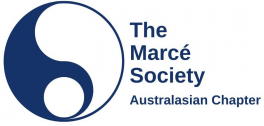Learning About Motherhood
Cathrine Fowler
Manager Education Unit, Tresillian Family Care Centres
NSW, Australia
The decision to become a mother is frequently based on beliefs of mothering being a natural state; fulfilment of a woman's ultimate "role" in life; and that a mother will innately know how to care for her baby. These circulating discourses of motherhood regularly draw on maternal instinct to provide a safety net which will "naturally" equip women with the ability to mother. A potential outcome of these essentialist discourses of motherhood is the silencing of women about their mothering experiences and the development of unrealistic expectations which cause potential distress, feelings of failure, incompetence and disappointment, resulting in possible long-term implications for the infant, other children and the family.
Fortunately, a counter reading of how women acquire mothering skills is possible and will be provided in an attempt to stimulate and offer a more productive way of thinking about motherhood and working with women. This counter reading allows an argument to be developed, that instead of mothering ability being an outcome of maternal instinct, mothering is learnt through the everyday experiences we have had as infants, children and young adults.
This paper comes out of a doctoral research project which utilises feminist and post-structuralist research practices. A limited longitudinal study of 9-to-12 months duration has been completed to gather data from a group of 15 women. The data consists of three extended semi-structured and dialogic interviews with each woman. The interviews explore the women's learning and experiences of pregnancy, childbirth and the first months of mothering.





